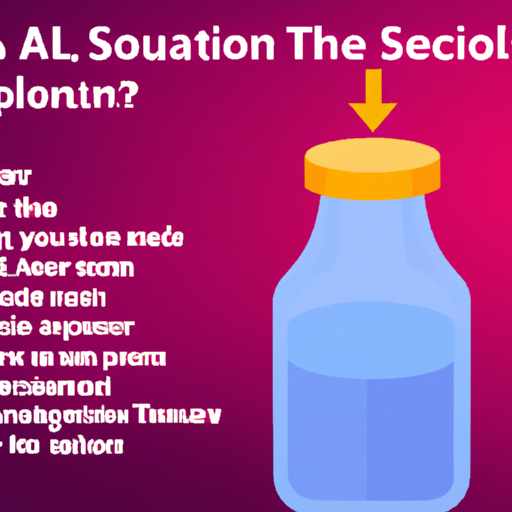“Secure Your Data – Learn How to Avoid SQL Injection Attacks!”
What is SQL Injection and How Can It Be Prevented?
SQL Injection is a type of attack that takes advantage of vulnerable code in web applications to gain access to a database. It is a malicious code injection technique that exploits a security vulnerability in an application’s software. The attacker inserts malicious SQL code into an entry field for execution, allowing them to gain access to sensitive data in the database.
SQL Injection attacks can be prevented by implementing a few security measures. Firstly, input validation should be used to ensure that only valid data is accepted by the application. Secondly, parameterized queries should be used to prevent malicious code from being executed. Thirdly, stored procedures should be used to limit the amount of data that can be accessed. Finally, database permissions should be set to limit the amount of data that can be accessed by the application.
By implementing these security measures, organizations can protect their databases from SQL Injection attacks and ensure that their data remains secure.
Understanding the Basics of SQL Injection and How to Avoid It
SQL injection is a type of cyber attack that targets databases and applications that use Structured Query Language (SQL). It is a malicious technique used by hackers to gain access to sensitive information stored in databases. SQL injection attacks are one of the most common types of cyber attacks, and they can have serious consequences for organizations.
SQL injection works by exploiting vulnerabilities in the application code. Attackers use malicious SQL statements to gain access to the database and manipulate data. For example, an attacker might use a SQL injection attack to delete data from a database or to gain access to confidential information.
To protect against SQL injection attacks, organizations should take a number of steps. First, they should ensure that their applications are properly coded and tested for vulnerabilities. This includes using parameterized queries, which are queries that use placeholders instead of directly inserting user input into the query. This prevents attackers from inserting malicious SQL statements into the query.
Organizations should also use input validation to ensure that user input is valid and does not contain malicious code. This can be done by using regular expressions to validate user input and by using whitelisting to ensure that only valid characters are accepted.
Finally, organizations should use web application firewalls to detect and block malicious requests. Web application firewalls can detect and block malicious requests before they reach the application.
By taking these steps, organizations can protect their databases and applications from SQL injection attacks. It is important to remember that SQL injection attacks can have serious consequences, so organizations should take the necessary steps to protect their data.
Exploring the Dangers of SQL Injection and How to Protect Your Website
SQL injection is a type of cyber attack that targets websites and databases. It is a malicious technique used by hackers to gain access to sensitive information stored in a database. It is one of the most common and dangerous forms of cyber attack, and it can have serious consequences for businesses and individuals alike.
SQL injection works by exploiting vulnerabilities in a website’s code. Hackers use malicious code to gain access to a website’s database, where they can view, modify, or delete sensitive information. This type of attack can be used to steal passwords, credit card numbers, and other confidential data. It can also be used to manipulate a website’s content, or even to take control of the entire website.
The best way to protect your website from SQL injection is to ensure that your code is secure. This means using secure coding practices, such as input validation and parameterized queries. Input validation is a process of checking user input to make sure it is valid and secure. Parameterized queries are a type of query that uses placeholders instead of directly inserting user input into the query. This prevents hackers from inserting malicious code into the query.
It is also important to keep your website and database up to date. Outdated software can contain vulnerabilities that can be exploited by hackers. Make sure to regularly update your software and apply security patches as soon as they become available.
Finally, it is important to use a web application firewall (WAF). A WAF is a security system that monitors and filters incoming traffic to your website. It can detect and block malicious requests, such as those used in SQL injection attacks.
SQL injection is a serious threat to websites and databases. By following the steps outlined above, you can help protect your website from this type of attack.
How to Detect and Mitigate SQL Injection Attacks
SQL injection attacks are a serious threat to the security of any website or application that uses a database. These attacks can be used to gain access to sensitive data, modify or delete data, or even take control of the entire system. Fortunately, there are steps that can be taken to detect and mitigate these attacks.
The first step in detecting and mitigating SQL injection attacks is to ensure that all user input is properly sanitized. This means that any user input should be checked for malicious code before it is used in a query. This can be done by using a whitelist of acceptable characters or by using a library such as the OWASP ESAPI to validate user input.
The second step is to use parameterized queries. This means that instead of directly inserting user input into a query, the input is passed as a parameter. This prevents malicious code from being executed as part of the query.
The third step is to use an intrusion detection system (IDS) to monitor for suspicious activity. An IDS can detect attempts to exploit SQL injection vulnerabilities and alert administrators to take action.
Finally, it is important to keep all software and databases up to date. This ensures that any security vulnerabilities are patched as soon as possible.
By following these steps, organizations can significantly reduce the risk of a successful SQL injection attack. It is important to remember that no system is completely secure, so it is important to stay vigilant and take steps to protect against these attacks.
Best Practices for Securing Your Website Against SQL Injection Attacks
SQL injection attacks are a major security threat to websites. They are a type of attack that exploits vulnerabilities in a website’s code to gain access to sensitive data. To protect your website from these attacks, it is important to take the necessary steps to secure it. Here are some best practices for securing your website against SQL injection attacks:
1. Use Parameterized Queries: Parameterized queries are a type of query that uses placeholders for user input. This prevents malicious code from being injected into the query.
2. Use Stored Procedures: Stored procedures are pre-defined SQL statements that are stored in the database. They can be used to execute queries and prevent malicious code from being injected into the query.
3. Use an Input Validation Library: Input validation libraries are used to validate user input before it is sent to the database. This helps to prevent malicious code from being injected into the query.
4. Use an Output Encoding Library: Output encoding libraries are used to encode user input before it is sent to the database. This helps to prevent malicious code from being injected into the query.
5. Use a Web Application Firewall: A web application firewall (WAF) is a security tool that monitors and filters incoming traffic to a website. It can be used to detect and block malicious requests that may contain SQL injection attacks.
6. Monitor Database Activity: It is important to monitor the activity of your database for any suspicious activity. This can help to detect any potential SQL injection attacks.
By following these best practices, you can help to secure your website against SQL injection attacks. It is important to remember that security is an ongoing process and it is important to regularly review and update your security measures.
Protect your website from SQL injection attacks by learning what it is and how to avoid it! Click here to find out more about SQL injection and how to prevent it. Don’t wait – take action now to protect your website!

